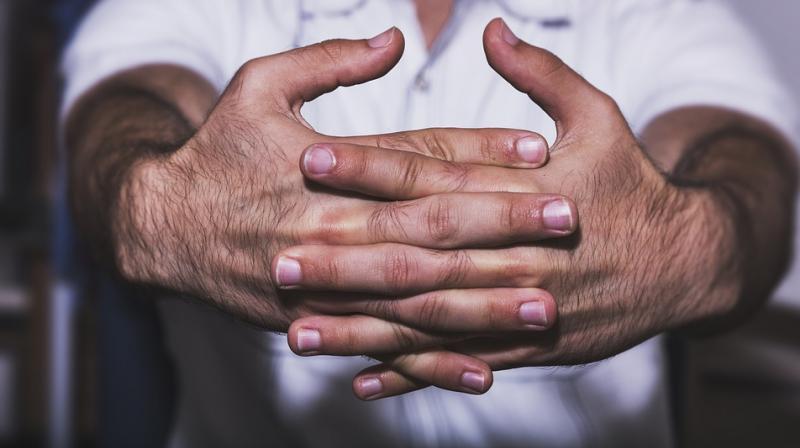Scientists solve mystery of why our knuckles crack
Study says change in pressure caused by joints result in microscopic bubbles collapsing producing sound waves which create cracking sound.'

Scientists believe they have finally found out why do our knuckles make such loud sound when we crack them.
The study, conducted by the Stanford University, California, used a mathematical model to determine many tiny bubbles that are collapsing at the same time inside our hands, causes the sound.
According to them a change in pressure caused by the joints result in the microscopic bubbles collapsing which then produce sound waves which create the ‘cracking sound.’
These then produce sound waves, which cause the well-known 'cracking' sound.
Incidentally, the theory put forward in the Stanford paper by is actually almost 50 years old.
The first report that claimed that small bubbles in the hand cause the sound was later contradicted by reports that the bubbles remained after 'cracking'.
But the latest study shows that the bubbles could still be the cause of the sound: they found that the only a partial collapse of bubbles would be required.
According to their results, not all the bubbles need to collapse to produce any sound.
They then compared the results of their model with real-life results and found that they were very similar - suggesting that their model had been correct, and the bubbles were to blame for the sound.
The research was published in Scientific Reports, a part of Nature Publishing Group.

